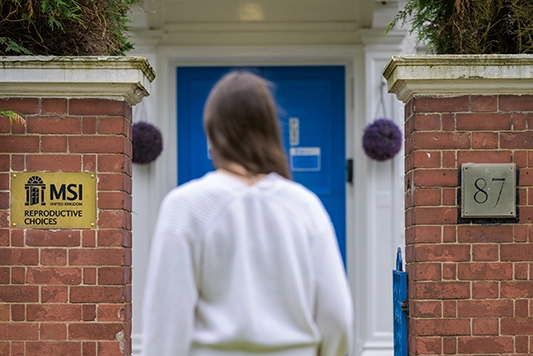New research highlights the importance of choice in abortion care
London, 17th April 2023
MSI Reproductive Choices UK welcomes new research highlighting how underinvestment and a lack of training are impacting patient choice in abortion care.
Based on an analysis of 2 million abortion services provided between 2011 and 2020, and interviews with 27 abortion providers, service managers and commissioners, the research uncovers structural issues within the health service that have contributed to an imbalance towards the use of medical abortion versus surgical abortion in England and Wales. It also calls for more access to training on surgical abortion to expand the workforce and ensure that abortion method choice is not limited by location.
MSI UK has long advocated for choice of medical or surgical abortion as a key component of quality abortion care and is proud to offer all its clients the choice and high-quality care they want and deserve.
As a leading abortion provider, whose clinics are all rated either good or outstanding by the Care Quality Commission, we are calling for changes to the way abortion is commissioned and funded to improve patient-centred care.
MSI’s team of highly-skilled surgeons are also providing training to eligible surgeons to expand the workforce and ensure that there is widespread and timely access to surgical abortion up to the legal gestation limit.
Louise McCudden, Advocacy and Public Affairs Advisor at MSI Reproductive Choices UK said:
“We welcome the recommendations that have come out of this research, as we have been calling for more reasonable funding from commissioners for abortion services and for abortion to be made part of the standard healthcare training curriculum for years.
“The choice of whether to have a surgical or medical abortion is a personal one as well a clinical one, and MSI Reproductive Choices UK takes pride in always offering as much choice as possible. But as this new research shows, this has become more difficult with surgical abortion provision inconsistent across the country. Abortion is essential healthcare, and there should be more support given to services so that everyone is able to make the right choice for them and their body.”
Dr Yvonne Neubauer, Associate Clinical Director at MSI Reproductive Choices UK, commented:
“This research highlights key issues within the sector that we have been tackling to continue to provide every client at MSI Reproductive Choices UK with their chosen abortion method. Nationally, the number of trained abortion surgeons is too low. To combat this, we are providing training in surgical abortion techniques, but with the current lack of signposting to this training, programmes have to be proactively sought out by professionals.
“To ensure we can provide a sustainable service in England and Wales, more doctors need to be encouraged to take up this training to replace those nearing retirement.”
The research paper is available to read here.
Notes to Editors
For interviews and further information please contact:
Email: press@msichoices.org
Tel: (+44) 07769 166 516
The research paper, ‘Structural barriers or patient preference? A mixed methods appraisal of medical abortion use in England and Wales’ by Katy Footman highlights the structural health system constraints that have influenced the shift towards medical abortion in the last ten years. It also recommends how to improve abortion method choice in England and Wales. The study’s recommendations are based on analysis of 2 million abortion services provided between 2011 and 2020, and interviews with 27 abortion providers, service managers and commissioners. More information on the study’s findings can be read here.
Medical abortion and surgical abortion are the method choices available when having an abortion. Medical abortion involves taking two types of medicine at two different times, and can be taken at home, without attending a clinic, up to ten weeks. Surgical abortion can be offered up to 23 weeks and 6 days of pregnancy and involves an experienced doctor using a suction method to remove the pregnancy vaginally.
NHS commissioners pay abortion providers for the provision of their services in their locality. You can read the 2023-25 NHS Payment Scheme for the latest information on pricing that commissioners can choose to apply or not.











































